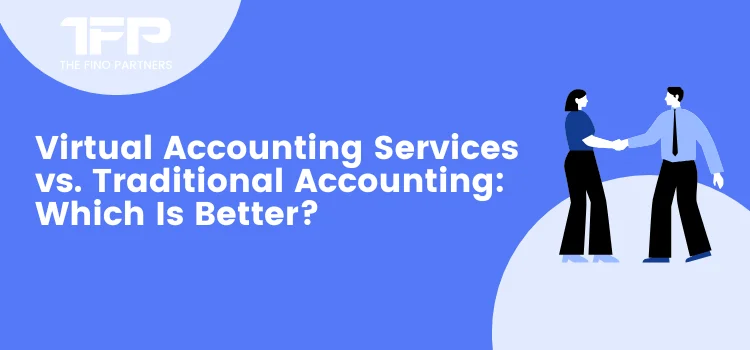There is a crucial choice to be made between virtual accounting services and traditional accounting that should be made by small business operators. Since technology comes in phases, more and more companies operating within the U.S. are increasingly embracing remote bookkeeping as their outsourced form of finance administration. Virtual bookkeeping offers remote and flexible access and is cheap while providing immediate information on activities within a business. However, traditional accounting still suits businesses that require face-to-face conversation or complicated tax needs. In this blog post, we'll discuss some pros and cons of virtual bookkeeping services versus conventional accounting and help you in deciding whether to choose virtual bookkeeping services or traditional accounting as a better fit for your small business.
What Are Virtual Bookkeeping Services for Small Businesses?
This type of bookkeeping service is to revolutionize the way small businesses are run, mostly because these companies have to go online. It will perhaps take cloud-based applications and software to use in a manner that would make bookkeeping hassle-free, conducted from a remote location away from a workplace.
Benefits of Virtual Bookkeeping Service
- Flexibility and Easy: Taking up the virtual bookkeeping service is sure to ensure that financial details or information is acquired regardless of distance or time.
- Cost Cutting: Virtual bookkeeping charges any small business far too low as compared to hiring them with in-house accountants.
- Real-Time Data: Outsource bookkeepers provide real-time financial information that allows for proper planning and making of business decisions.
- Better Security: Cloud computing provides strong security networks that cover all the sensitive finance information.
- Technical Knowledge:virtual bookkeepers provide technical services in different services and software to industries by adding value to businesses.
What is the benefit of traditional accountancy?
Communication: There would be personal communication when meeting face-to-face and receiving personalized help.
Know Specific State Law: There are accountants who know the nitty-gritty of state law, a very useful input for American companies.
Good Relations with Customers: In the classical scenario, regular in-person meetings between the traditional accountant and client create customer trust.
Services: All the services-from tax planning to payroll can usually be sourced from traditional organizations.
Disadvantage of classical accountancy
- Higher Costs: Physical offices are more expensive, having overhead costs.
- Less Flexibility: The physical offices have a certain number of working hours, and therefore access to financial data is limited.
- Slowest Response Times: Traditional accounting has more paperwork involved, and therefore the turnaround time is longer.
What Do Small Businesses Prefer Between Virtual Accounting and Traditional Accounting?
It all depends on what your business needs and its budget.
Best for Virtual Accounting Services.
- Small Business: The inexpensive virtual bookkeeping service is very advantageous to many small business ventures.
- Startups: Virtual services scale well and are perfect for an expanding startup.
- Remote Teams: If your company operates remotely, then virtual bookkeepers keep your team connected.
- Cost-Conscious Companies: With low overhead, the virtual bookkeeping service is inexpensive.
Traditional Accounting Suits Businesses That.
- Require Hands-on Interaction: In case your business requires a finance boost through hands-on interaction, then traditional accountancy will be more effective.
- Deal with Difficult Finance: Companies that have cumbersome tax and regulatory requirements want local experience.
- Have Preference for Long-Term Relationships: Traditional accountants have long term-based relationships.
Conclusion
There are benefits that both virtual and traditional accounting services can provide. Virtual bookkeeping is cost-effective, accessible, and allows for up-to-date information for small businesses and start-up enterprises. However, traditional accounting provides personal support and familiarity with local regulatory requirements that can be gold for complicated financial needs. Regardless of whether it is virtual or traditional accounting, the goal is having efficient and accurate management of funds. Virtual accounting services through Fino Partners can innovatively empower businesses to maintain proper control over their funds with real-time access, cost efficiency, and guaranteed security.
Read Also Virtual Accounting vs. Traditional Accounting: Which is Right for Your Business?



























